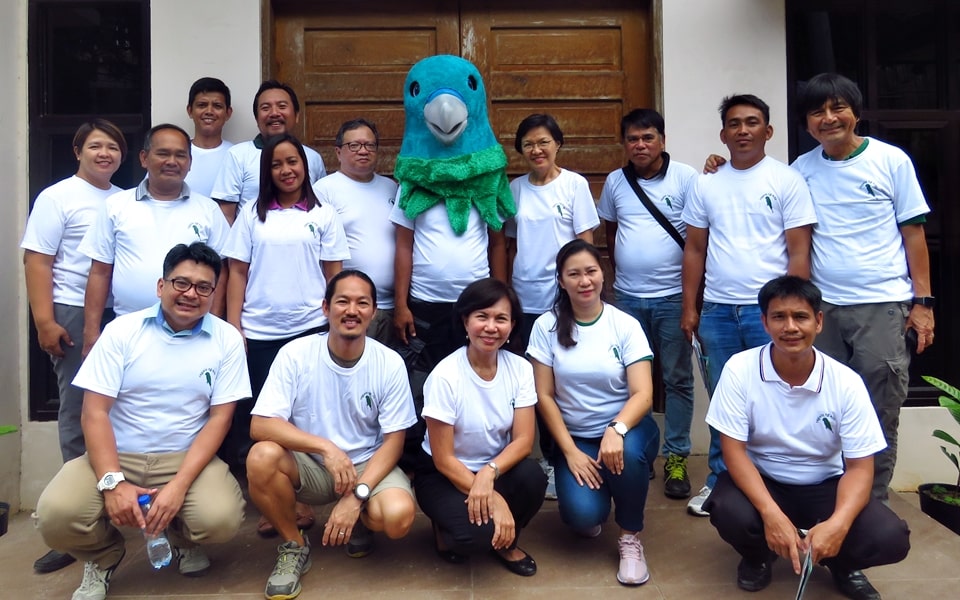 Participants and organizers of the Meeting-Workshop with stakeholders and potential partners for the implementation of School-Plus-Home Gardens Project in Busuanga, Palawan
Participants and organizers of the Meeting-Workshop with stakeholders and potential partners for the implementation of School-Plus-Home Gardens Project in Busuanga, Palawan
CORON, Palawan – School plus home gardens would significantly benefit Busuanga Island, Palawan. This was the consensus of a consultation workshop undertaken by a team from the Southeast Asian Regional Center for Graduate Study and Research in Agriculture (SEARCA) and the University of the Philippines Los Baños (UPLB) during a scoping visit in Coron on 29-31 July 2019 to gauge the interest and willingness of potential partners and the community to participate in the School-Plus-Home-Gardens Project (S+HGP).
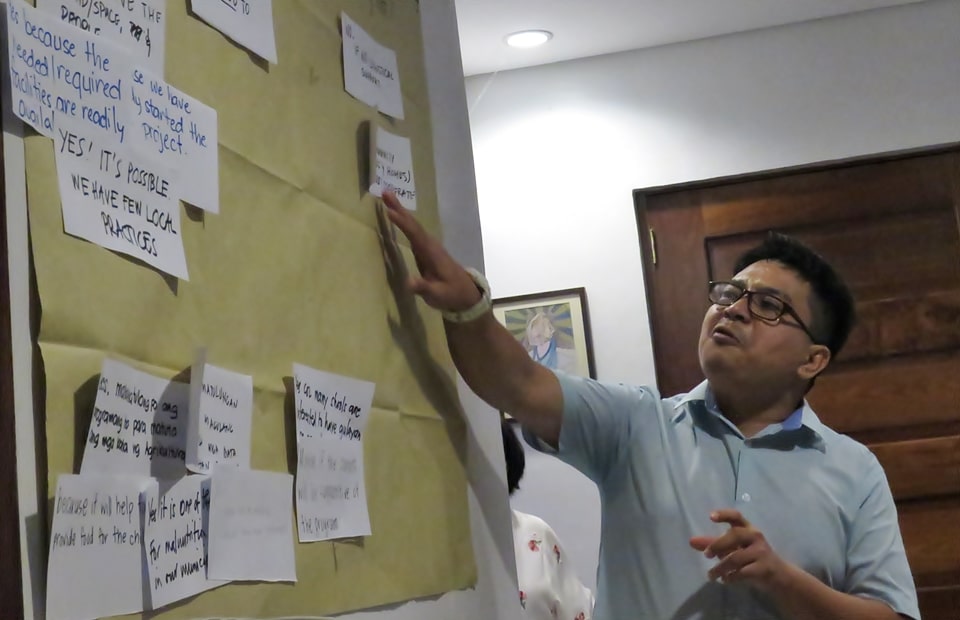 Dr. Pedcris M. Orencio, Program Head for Research and Development, facilitated the Meeting-WorkshopAccording to the workshop participants - representatives from the Coron Municipal Agriculture Office (MAO), Community Environment and Natural Resources Office (CENRO), local grade schools from the inland and coastal districts, and the tourism sector - the municipalities of Coron and Busuanga, which comprise Busuanga Island, are food insecure. Agriculture is not a strong sector in the island primarily due to the poor quality of its soil. Though rich in seafoods, the municipalities import most of their fruits and vegetables from neighboring areas. This leads to high prices of these produce, which adversely affect nutrition of poor families. This also increases prices of food in restaurants, an integral part of the booming tourism industry of the island. It was likewise underscored that for every peso earned from tourism in Coron, eighty centavos (Php0.80) leave the municipality due to the importation of produce.
Dr. Pedcris M. Orencio, Program Head for Research and Development, facilitated the Meeting-WorkshopAccording to the workshop participants - representatives from the Coron Municipal Agriculture Office (MAO), Community Environment and Natural Resources Office (CENRO), local grade schools from the inland and coastal districts, and the tourism sector - the municipalities of Coron and Busuanga, which comprise Busuanga Island, are food insecure. Agriculture is not a strong sector in the island primarily due to the poor quality of its soil. Though rich in seafoods, the municipalities import most of their fruits and vegetables from neighboring areas. This leads to high prices of these produce, which adversely affect nutrition of poor families. This also increases prices of food in restaurants, an integral part of the booming tourism industry of the island. It was likewise underscored that for every peso earned from tourism in Coron, eighty centavos (Php0.80) leave the municipality due to the importation of produce.
The consultation also indicated the support that could be extended to the S+HGP by various stakeholders. Government agencies, through their local offices, could provide technical assistance on organic vegetable production and provide inputs such as garden tools, seeds, other planting materials, and organic fertilizers. The schools were likewise supportive of the initiative as this would support the Gulayan sa Paaralan Project of the Philippine Department of Education. It would also be an avenue to involve, encourage, and educate parents and families on vegetable growing and nutrition.
The tourism sector could also provide training venues, food and accommodations, and local transportation to the training teams. Under particular conditions, members of the sector could also allow parcels of land adjacent to schools and owned by members of the sector to be used as S+HGP demonstration areas. The sector could be a consumer/market of produce in excess of the needs of the schools. It could likewise encourage industry players to adopt a school for S+HGP and showcase the adopted S+HGP to guests/tourists and engage these tourists in local initiatives.
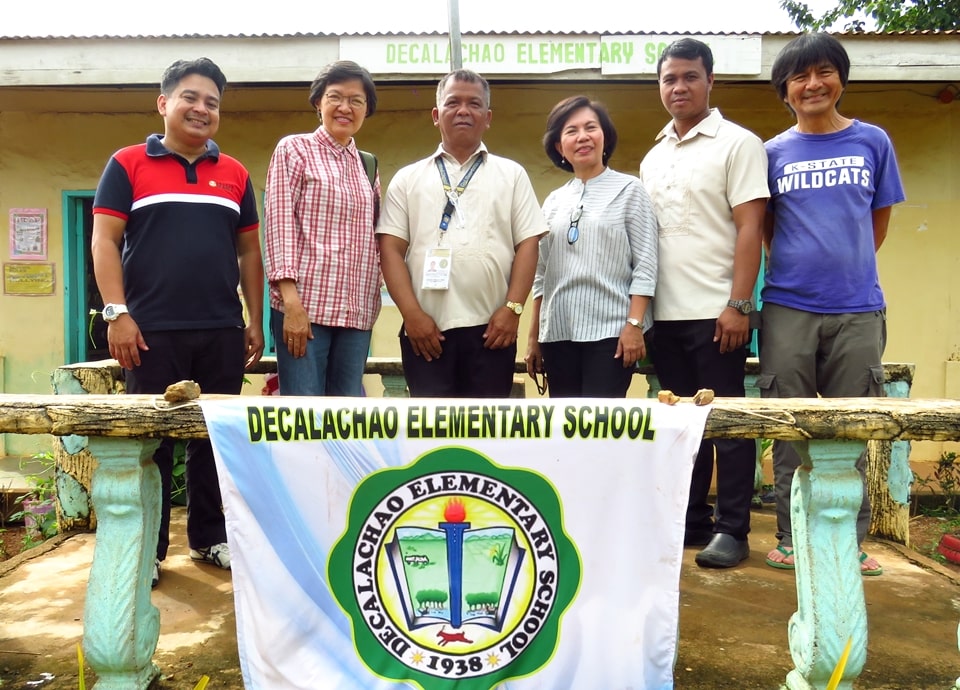 SEARCA's School-Plus-Home Gardens Project Team together with Dr. Manny Reyes (left), Researcher Professor from Kansan State University, visited the Decalachao Elementary School in Coron, PalawanThe S+HGP was a collaboration among SEARCA, UPLB, and the Department of Education (DepEd) of the Philippines, district of Laguna. It supported and redesigned DepEd's earlier school garden programs through an innovative approach that focused not only on nutrition and education but on the economic well-being of school children, their families, and their communities. The project extended the gardening-feeding linkage to the establishment of food gardens in the children's homes through which the parents could ensure good nutrition for their children, while also saving on food expenses. Piloted in six schools in the province of Laguna, Philippines, harvests from the school gardens provided fresh vegetables for the school-based feeding program. S+HGP highlighted the multi-functionality of school gardens as learning laboratories for pupils, teachers, and parents on sustainability concepts and the interconnections of food and nutrition, organic agriculture, and edible landscaping, among others.
SEARCA's School-Plus-Home Gardens Project Team together with Dr. Manny Reyes (left), Researcher Professor from Kansan State University, visited the Decalachao Elementary School in Coron, PalawanThe S+HGP was a collaboration among SEARCA, UPLB, and the Department of Education (DepEd) of the Philippines, district of Laguna. It supported and redesigned DepEd's earlier school garden programs through an innovative approach that focused not only on nutrition and education but on the economic well-being of school children, their families, and their communities. The project extended the gardening-feeding linkage to the establishment of food gardens in the children's homes through which the parents could ensure good nutrition for their children, while also saving on food expenses. Piloted in six schools in the province of Laguna, Philippines, harvests from the school gardens provided fresh vegetables for the school-based feeding program. S+HGP highlighted the multi-functionality of school gardens as learning laboratories for pupils, teachers, and parents on sustainability concepts and the interconnections of food and nutrition, organic agriculture, and edible landscaping, among others.
The scoping visit was undertaken upon the invitation of the Regalo ng Kilit (RnK) Foundation. Its vision is to enhance biodiversity while growing food, boosting tourism, and increasing income in Busuanga Island. It aims to meet its vision through the protection of the Kilit, which is the local name for the blue-headed racquet-tail parrot, Prioniturus platenae, an International Union for the Conservation of Nature (IUCN)-listed vulnerable parrot with less than 10,000 left in the world. Palawan, Philippines is said to be the only place where the Kilit lives.
The RnK Foundation is headed by Dr. Manuel R. Reyes, Research Professor and Agroecological Engineer at the Sustainable Intensification Innovation Lab (SIIL) of the Kansas State University.
The scoping visit team was composed of Dr. Pedcris M. Orencio, Program Head; Ms. Carmen Nyhria G. Rogel, Program Specialist; and Ms. Rochella B. Lapitan, Program Support Staff; all from SEARCA's Research and Development Department and Dr. Blesilda M. Calub, University Researcher IV of the Agricultural Systems Institute of the UPLB College of Agriculture and Food Science and SEARCA Adjunct Fellow.
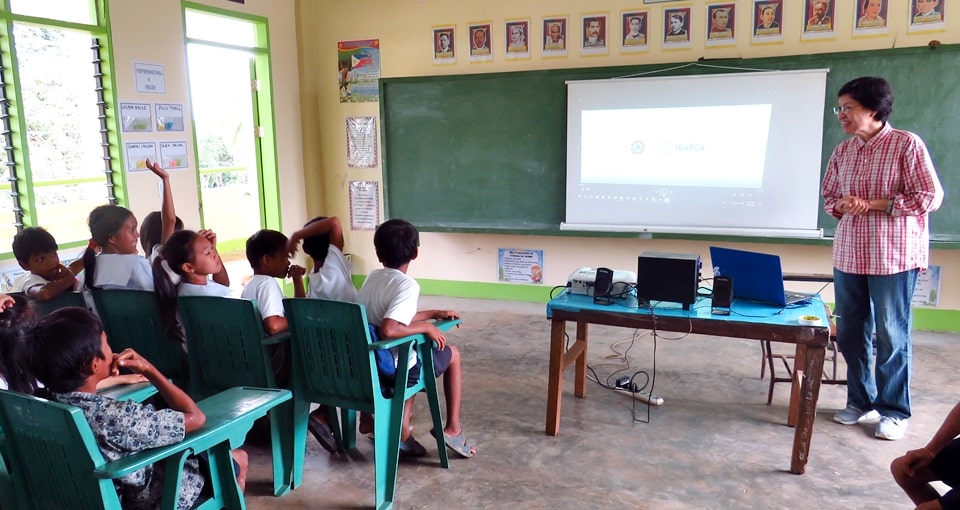 Dr. Blesilda M. Calub, University Researcher IV from University of the Philippines Los Baños and SEARCA’s Adjunct Fellow, briefed the students of Decalachao Elementary School about the School-Plus-Home Gardens Project
Dr. Blesilda M. Calub, University Researcher IV from University of the Philippines Los Baños and SEARCA’s Adjunct Fellow, briefed the students of Decalachao Elementary School about the School-Plus-Home Gardens Project
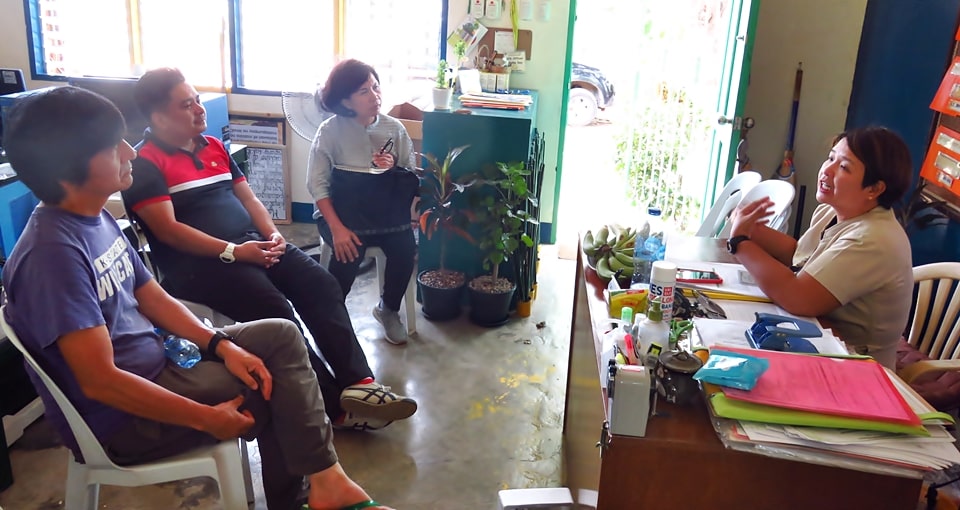 Ms. Catherine Javarez, School Head of Malbato Elementary School (MES), provided key information about MES during the scoping visit for the S+HGP
Ms. Catherine Javarez, School Head of Malbato Elementary School (MES), provided key information about MES during the scoping visit for the S+HGP